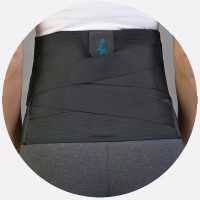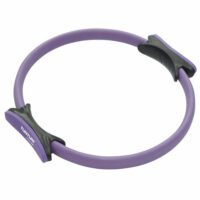Article by John Miller
Real-Time Ultrasound Physiotherapy for Muscle Activation

Why is Real-Time Ultrasound Physiotherapy Important?
Real-time ultrasound physiotherapy is revolutionising how we approach muscle health and rehabilitation. It provides a dynamic visual assessment, allowing both you and your physiotherapist to observe your muscles in action. But why is this significant? Muscle activation patterns play a crucial role in recovery from injuries and maintaining optimal muscle function. Incorrect muscle recruitment can lead to persistent pain and ineffective rehabilitation.
How Does It Work?
Using diagnostic ultrasound technology, your physiotherapist can assess how your muscles contract and relax in real-time. This isn’t just for observation; it’s a proactive tool. By visualising muscle activity, your physiotherapist can correct improper activation patterns on the spot, ensuring that your muscles function efficiently and in the correct sequence.
For instance, if you suffer from lower back pain, real-time ultrasound can help pinpoint if your core muscles are failing to engage properly, which might be contributing to your pain. By addressing these issues early, you can avoid chronic problems.
What Can You Expect During a Session?
During your session, your physiotherapist will:
- Assess Your Muscle Activation: By watching the screen, you’ll see your muscles contracting. Your physiotherapist will guide you in adjusting your contractions to achieve the desired muscle activity.
- Provide Education: Understanding your body is key to recovery. Your physiotherapist will explain what’s happening with your muscles and how you can improve your control over them. This isn’t just a passive experience; you’ll actively participate in your rehabilitation.
- Offer Corrective Exercises: Based on the ultrasound assessment, your physiotherapist will tailor exercises to your needs. Whether you’re an athlete, a desk worker, or someone recovering from surgery, these exercises will be specific to your activity demands and will progress as your control improves.
What to Do Next?
If you’re struggling with muscle pain or want to enhance your muscle function, booking a session with a physiotherapist who uses real-time ultrasound can be a game-changer. Early intervention with this technology can prevent long-term issues and help you achieve your health and fitness goals. For professional advice tailored to your needs, consult your physiotherapist.
Real Time Ultrasound Clinic Bookings
Rochedale - Call 38410277
Book Online: RochedaleSalisbury - Call 32751044
Book Online: SalisburySandgate - Call 32691122
Book Online: Sandgate
Real-Time Ultrasound Physiotherapy FAQs
1. Why is Real-Time Ultrasound Used in Physiotherapy?
Real-time ultrasound provides visual feedback that helps in assessing and correcting muscle activation patterns. It’s crucial for precise rehabilitation.
Read More about how ultrasound aids in physiotherapy.
2. How Does Real-Time Ultrasound Assist in Muscle Recovery?
By observing muscles in action, your physiotherapist can identify and correct improper activation, which speeds up recovery and improves outcomes.
Read More on techniques for muscle recovery.
3. What Conditions Can Benefit from Real-Time Ultrasound Physiotherapy?
This technology is beneficial for conditions like lower back pain, pelvic floor dysfunction, and post-surgical rehabilitation.
Read More on conditions treated with ultrasound.
4. Who Should Consider Real-Time Ultrasound Physiotherapy?
Anyone experiencing muscle pain, recovering from injury, or looking to enhance muscle function can benefit from this advanced physiotherapy technique.
5. Where Can I Access Real-Time Ultrasound Physiotherapy?
You can access these services at PhysioWorks clinics in Ashgrove and Sandgate.
6. When Should Real-Time Ultrasound Be Used in Physiotherapy?
It’s best used early in the rehabilitation process to ensure correct muscle activation and prevent long-term issues.
Read More on the timing of ultrasound in treatment.
Social Media
Follow Us for Free Tips
For more tips on enhancing your muscle health and recovery, follow us on our social media platforms. We regularly share useful insights that can help you stay on top of your fitness and well-being.
Related Articles
- "Core Stability Physiotherapy" - Discover how core stability is essential for preventing and managing lower back pain.
- "Lower Back Pain Relief" - Learn about effective strategies for managing and relieving lower back pain.
- "Pelvic Floor Physiotherapy" - Explore the benefits of pelvic floor physiotherapy for improving bladder control and core stability.
- "Sports Injury Management" - Find out how physiotherapy can help you recover from sports injuries.
- "Neck Pain Treatment" - Understand the causes of neck pain and the role of physiotherapy in treatment.
- "Shoulder Pain Solutions" - Gain insights into shoulder pain causes and physiotherapy treatments.
- "Post-Surgical Rehabilitation" - Learn about the importance of physiotherapy after surgery for a full recovery.
- "Physiotherapy for Runners" - Discover how physiotherapy can help prevent and treat common running injuries.
- "Hip Pain Relief" - Explore the physiotherapy techniques that can relieve hip pain.
- "Knee Pain Management" - Learn about the various physiotherapy treatments available for managing knee pain.
- "Ultrasound Imaging in Physiotherapy" - A comprehensive overview of how ultrasound is utilised in physiotherapy for muscle assessment.
- "The Role of Ultrasound in Muscle Recovery" - Discusses the impact of ultrasound technology on enhancing muscle recovery post-injury.
- "Advancements in Physiotherapy: Ultrasound Techniques" - Explores the latest advancements in ultrasound technology within physiotherapy practices.














































































